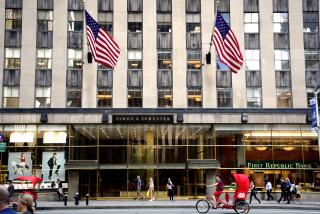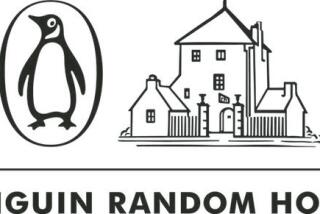Penguin and Random House finalize merger
Calling their union “the world’s first truly global trade book publishing company,” Penguin and Random House finalized on Monday morning a merger that brings together two legacy publishers, at a time when the rise of the Kindle, among other forces, threatens the dominance of the traditional publishing houses.
The new group is called Penguin Random House. Its logo is the rather unimaginative placement of the two famed corporate images – Penguin’s penguin and the Random House domicile – next to each other. Perhaps tellingly, the penguin is looking away from the Random House symbol.
Random House’s parent company, the German media group Bertelsmann, is to control 53% of the new company, while 47% is to be controlled by Pearson, Penguin’s parent company.
The chief executive of Penguin Random House is Markus Dohle, who has held the same position at Random House since 2008. The company’s chairman is John Makinson, who has headed the Penguin Group since 2002. According to a press release, the company will be based in New York and will employ 10,000 people.
The new company is an impressive show of strength, featuring a list that will include “The Grapes of Wrath” and “Fifty Shades of Grey,” as well as much of what’s in between. The new company’s press release says that its combined list includes more than 70 winners of the Nobel Prize for Literature.
It intends to publish 15,000 new titles per year across its 250 imprints.
The finalization of the merger – which was first announced last October – comes days after Hachette announced it was buying the publisher Hyperion. While that, in relative terms, is a smaller deal, it nevertheless continues a trend that worries some: the swallowing-up of smaller publishers by larger ones, thus leading to a homogenized publishing industry decreasingly willing to take on untested new authors or publish works that have literary merit but might not lead to “Harry Potter”-level sales.
This merger may be nothing so much as a move of necessity. As Carolyn Kellogg wrote on this blog in February, when the U.S. Department of Justice approved the merger, “Amazon’s dominance in the online bookselling market has allowed it to set terms for publishers, who have had little recourse. Some think Penguin Random House might be large enough to shift the balance a little.”
Others, however, were less sanguine. Adam Davidson, founder of NPR’s “Planet Money,” wrote in the New York Times Magazine last November that mergers of such a scope were “the financial version of a couple having a baby to save a marriage.”
For better or worse, Random House’s ring is now on Penguin’s finger. Let’s see how this union fares.
ALSO:
Throwing the book at ‘The Thieves of Book Row’
Publishing consolidation continues: Hachette buys Hyperion
Who made TV so good?Brett Martin and Alan Sepinwall look at the TV revolution
More to Read
Sign up for our Book Club newsletter
Get the latest news, events and more from the Los Angeles Times Book Club, and help us get L.A. reading and talking.
You may occasionally receive promotional content from the Los Angeles Times.







